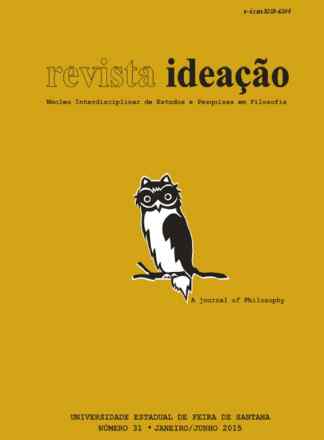A gênese do sujeito no laboratório cinematográfico de Gilles Deleuze
Revista Ideação
A gênese do sujeito no laboratório cinematográfico de Gilles Deleuze
Autor Correspondente: M. G. Rodrigues (editor) | [email protected]
Palavras-chave: Bergson; Deleuze; cinema; subjetividade; temporalidade.
Resumos Cadastrados
Resumo Português:
Empreendemos neste artigo uma reconstrução dos principais momentos do itinerário de Deleuze ao longo dos dois tomos de Cinema (DELEUZE, 1983 e 1985), intentando mostrar a lógica subjacente aos principais tipos de imagem ali presentes. A nossa tese geral é a de que encontramos entre os diversos tipos de imagem uma ordem bastante precisa, a qual corresponde basicamente à quela ordem que encontrarÃamos caso lêssemos Matéria e memória (BERGSON, 1999) de um ponto de vista genético, buscando ali elementos para uma teoria da individuação que teria como ponto de partida o universo material ou campo de imagens, num segundo momento a irrupção da vida neste universo (representada em Cinema pela trÃplice diferenciação da imagem-movimento em imagem-percepção, imagem-ação e imagem-afecção), e num terceiro momento a aparição do espÃrito propriamente dito, representado em Cinema pelas diversas modalidades da imagem-tempo. Se nossa chave de leitura estiver correta, teremos como consequência a tese de que, para Deleuze, há uma analogia estrita entre a temporalização progressiva da imagem cinematográfica e a individuação progressiva da própria subjetividade.
Resumo Inglês:
We undertake in this article a reconstruction of the key moments of deleuzean’s itinerary in the two tomes of Cinema (DELEUZE, 1983 e 1985), intending to show the logic behind the key types of images present there. Our general thesis is that we find between the several types of images an order very precise, which basically correspond to that order that we would find if we read Matter and memory (BERGSON, 1999) from a genetical point of view, searching there elements for a theory of individuation which would have in its origins the material universe or field of images, in a second moment, the emergence of life in this universe (represented in Cinema by the triple differentiation of the movement-image in perception-image, action-image and affection-image), and in a third moment the apparition of the spirit itself, represented in Cinema by different modalities of the time-image. If our hypothesis will be correct, we would have as consequence the thesis that, for Deleuze, there is a strict analogy between the progressive temporalization of the cinematographic image and the progressive individuation of the subjectivity itself.

